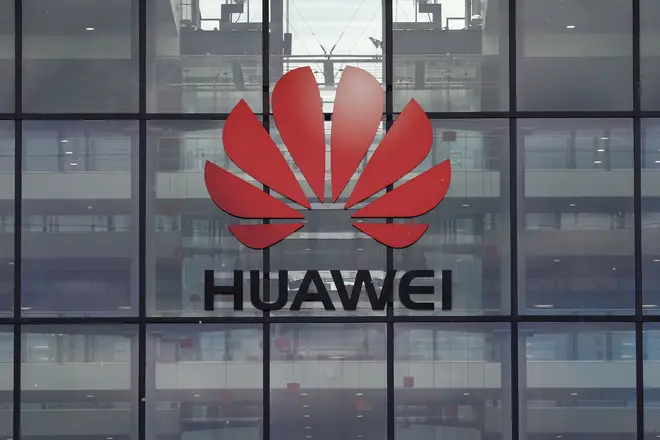
Tom Swarbrick 4pm - 6pm
30 April 2019, 12:26 | Updated: 2 April 2020, 15:00

The National Security Advisor has opened an inquiry into security council leaks, after details of a security council meeting on Huawei's involvement in British telecom infrastructure was leaked. But who are Huawei, and why is it a sticking point for politicians?
Britain's National Security Advisor Sir Mark Sedwill has written to Ministers and their staff asking whether they have had any contact with a journalist who published details of National Security Council meeting, in which it was reported Chinese telecoms firm Huawei has been given the 'green light' to build parts of "non core" infrastructure.
But who are Huawei, and why have foreign governments warned against their involvement?
Huawei is a Chinese telecoms and consumer electronics company.
It manufacturers mobile phones, smartwatches and computers, as well as computer storage systems and infrastructure for telecommunications.
This part of their business, the telecom infrastructure, has been involved in providing technology to support the UK's 3G and 4G networks.
5G is the next generation of wireless connectivity, promising to bring internet speeds 10-20 times faster than those on 4G.
The quicker speed means that you can watch videos on your phone without them 'buffering' too much.
5G will also play a key role in the 'internet of things' (IoT), which allows people to control things in their home (lights, washing machines, and other consumer electronics) as well as allowing driverless cars to operate.
IoT also applies to infrastructure, with water and air-quality monitoring systems using the technology to send data to operators, and to control traffic lights and display live departures at bus stops and train stations.
The head of MI6, Alex Younger, said that that UK needed to decide if it was "comfortable" with using Chinese technology.
"We need to decide the extent to which we are going to be comfortable with Chinese ownership of these technologies and these platforms in an environment where some of our allies have taken quite a definite position," said Mr Younger.
"It’s not wholly straightforward."
And other governments around the world have blocked Huawei technology being used in the next-generation mobile networks, with the primary reason behind the decision being one of security concern.
British telecom giants BT and EE have already begun removing equipment made by Huawei from core parts of their 3G and 4G operations.
They also plan to exclude the firm from bidding on future 5G contracts.
But whilst Huawei has said it never intends to hand over information to the Chinese government, there is some skepticism over whether it would have a choice.
The US, Australian, Japanese and New Zealand governments have banned Huawei from providing components to build 5G networks in their countries.
But Germany has decided not to ban the firm, with Jochen Homann, president of regulator the Bundesnetzagentur, saying he is yet to see evidence that the company poses a security risk.
In France, politicians are debating a bill that will mean network equipment undergoes strict testing to decide whether it poses any security risk, giving powers to the government to block any manufacturer that might be subjected to interference from a state that is not a member of the European Union.
Italy has not moved to block Huawei, despite earlier saying it would, and Canada has not yet made a decision.
News that Prime Minister Theresa May gave the 'green light' to Huawei's involvement in Britain's 5G network was leaked from a National Security Council meeting.
The National Security Council, comprised of the Prime Minister and some senior Cabinet Ministers, as well as military and intelligence officers, is to discuss and oversee all issues relating to intelligence coordination, defence strategy and other national security matters.
But information about one meeting, in which Huawei's involvement in British telecoms was discussed, was published in the Telegraph newspaper.
Despite warnings from the United States and senior Ministers, the council agreed to allow the Chinese firm 'limited access' to help build parts of "noncore" infrastructure.
Following the leak, Sir Mark Sedwill, the National Security Advisor, wrote to Ministers and their staff who attended a meeting of the National Security Council asking whether they will be willing to cooperate with an inquiry into the leak.
It was reported that Sir Mark demanded they confirm or deny whether they had contact with the journalist, and whether they would be willing to cooperate with an inquiry.
Several cabinet ministers have publicly denied they were involved: Jeremy Hunt said the leaks were "utterly appalling," and Gavin Williamson insisted "neither I nor any of my team have divulged information from the National Security Council."
Sajid Javid said it was "completely unacceptable" for any Government minister to "share sensitive information that cannot be out in the public domain."